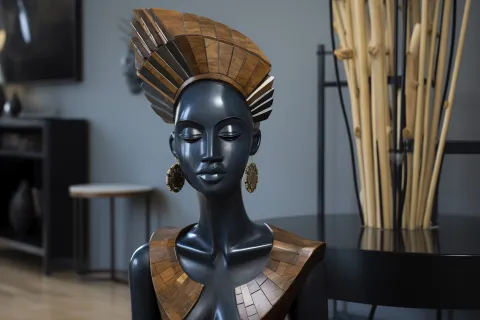blaXistence
Image

Start date: October 2022
End date: August 2024
Partner: Bigi Bon Foundation, Weekend College ROCvA
Funder: VSB
Image

The objective of Blaxistence was to bring MBO students into contact with the multiculturalism that prevails in many large Dutch cities. Blaxistence has brought polyphonic culture into the classroom.
Everything within the walls and curricula of ROC-Amsterdam
Objective: students learn to know and appreciate each other's cultures as much as possible.
Various experts have indicated that a generic one size fits all approach to vocational training leads to future professionals being inadequately trained for working in a metropolitan environment (see, among others, Boggess, 2008, 2010; Haberman 1996). The principles espoused by some: kids are kids, teaching is teaching, and learning is learning simply do not do justice to the challenges faced by pedagogues and teachers in the city and have therefore been rightly criticized (Haberman, 1996).
In addition, it has also been scientifically proven that the teaching staff in many schools does not reflect the community and certainly not the student population. There are regular reports from students of color who indicate that they do not feel seen or heard at school, and do not recognize themselves in the system of which they are part. It goes without saying that this leads to school dropouts and generational underachievement. Education must be more inclusive, students (and teachers) must be made more aware of the different cultures that have a home in the Netherlands. The current curriculum for citizenship and the subject of cultural diversity are inadequate and do not meet contemporary standards.
The overarching objective of Blaxistence was to bring secondary vocational education students into contact with the multicultural culture that prevails in many large Dutch cities, by bringing polyphonic culture into the classroom. We eventually developed curricula that teach students at secondary vocational schools of ROC van Amsterdam a broader awareness of cultures that they (can) qualify for in multicultural Amsterdam. For example, this should break the habit of celebrating cultures only during their heyday, as if those cultures do not exist at other times. Young people are taught knowledge of the "other", which will ultimately lead to more cohesion, awareness, tolerance and ultimately equal opportunities for everyone.
EXECUTION
Due to a change in project management and because some of the required finance only became available late, the project did not get started until January 2023. One of the funders also withdrew, which required some innovation from us; We were then able to enter into a partnership with an organization that also developed activities with young people, which gave our project an unexpected, beautiful twist: a group of newcomers from Arab countries and Latin America joined our project, which added a new dimension to cross-pollination. dimension.
Entering the vocational education system was also challenging. This was mainly because schools are often not aware - or rather do not want to admit - that they have a problem. At many ROCs, approximately 70 percent of the student body is of migrant origin and especially of African descent, but management teams do not reflect this. Of course, neither does education. An attempt to discuss this with someone charged with a transition to a more inclusive school was met with incomprehension.
“We are all the same,” he said. But that's not so!
This principle, however utopian, ignores the origins and cultures of a large proportion of the students and affirms the notion that European culture is the benchmark.
It was therefore not possible to become a structural part of the educational offering; What was successful was to 1. Provide guest lectures with teacher friends and 2. Provide series of workshops and carry out projects with the Weekend College and StudieMAX, learning support organizations of the ROC.
We have developed curricula that teach students a broader awareness of cultures that they (can) relate to in multicultural Amsterdam. We have taught young people knowledge of the "other", which leads to greater cohesion, awareness, tolerance and ultimately equal opportunities for everyone.
The implementation of the program has also opened new doors for us. It has led to the (further) development of several Blaxistence curricula and other Afrocentric education.
The project also resulted in the fact that we have now started offering an Africana course. This is to decolonize the educational offering. In collaboration with African universities, we will expand this range of courses in the near future. We have also given various lectures for universities and the Comenius network about educational decolonization.

